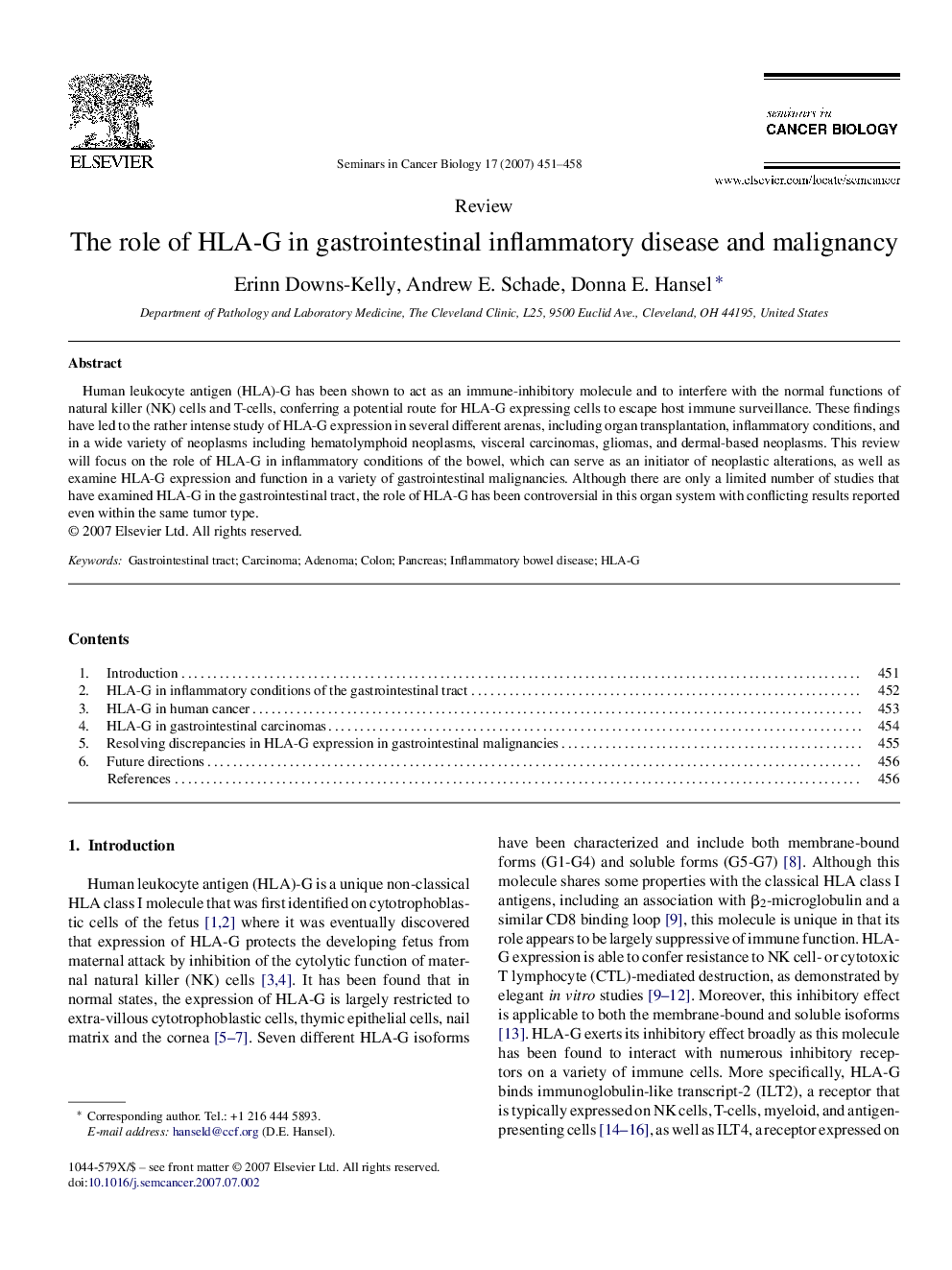| Article ID | Journal | Published Year | Pages | File Type |
|---|---|---|---|---|
| 2024207 | Seminars in Cancer Biology | 2007 | 8 Pages |
Human leukocyte antigen (HLA)-G has been shown to act as an immune-inhibitory molecule and to interfere with the normal functions of natural killer (NK) cells and T-cells, conferring a potential route for HLA-G expressing cells to escape host immune surveillance. These findings have led to the rather intense study of HLA-G expression in several different arenas, including organ transplantation, inflammatory conditions, and in a wide variety of neoplasms including hematolymphoid neoplasms, visceral carcinomas, gliomas, and dermal-based neoplasms. This review will focus on the role of HLA-G in inflammatory conditions of the bowel, which can serve as an initiator of neoplastic alterations, as well as examine HLA-G expression and function in a variety of gastrointestinal malignancies. Although there are only a limited number of studies that have examined HLA-G in the gastrointestinal tract, the role of HLA-G has been controversial in this organ system with conflicting results reported even within the same tumor type.
